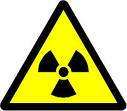Fukushima Operators Struggle To Contain ‘Outrageous Amount’ Of Radioactive Water

Operators of Japan’s Fukushima Dai-ichi plant are having trouble storing a perpetual accumulation of radioactive cooling water from the plant’s broken reactors, the plant’s water-treatment manager, Yuichi Okamura, told the Associated Press in an interview this week.
The plant currently holds 200,000 tonnes of highly contaminated waste water, used to cool the broken reactors, but operator, Tokyo Electric Power Company, continues to struggle to find ways to store the toxic substance. TEPCO has said they are running out of room to build more storage tanks and the volume of water will more than triple within three years.
“It’s a time-pressing issue because the storage of contaminated water has its limits, there is only limited storage space,” Okamura said.
After the Fukushima nuclear catastrophe of 2011, the plant’s broken reactors have needed constant cooling and maintenance, including the dumping of massive amounts of water into the melting reactors — the only way to avoid another complete meltdown.
Adding to the excessive amounts of cooling water is ground water, which continues to leak into the reactor facilities because of structural damage.
“There are pools of some 10,000 or 20,000 tonnes of contaminated water in each plant, and there are many of these, and to bring all these to one place would mean you would have to treat hundreds of thousands of tons of contaminated water which is mind-blowing in itself,” Masashi Goto, nuclear engineer and college lecturer, stated, adding the problem is a massive public health concern.
“It’s an outrageous amount, truly outrageous” Goto added.

